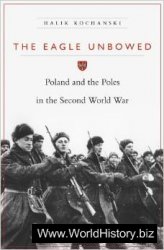The consciousness that in religious matters the Greeks had moved on from more primitive traditions of abject dependence on the gods and could move on even further is found in the poems of a contemporary of Homer, the poet Hesiod (normally dated to about 700 Bc). Unlike Homer, Hesiod provides some biographical details about himself. His father had migrated back from overseas to Boeotia on the Greek mainland, where Hesiod had been born. The family estates were small, and when Hesiod and his brother inherited them they soon quarrelled over their shares. Hesiod comes over as a cynical and pessimistic figure, hardened by the experience of peasant life and with deep-rooted prejudices against women.
The earliest work of Hesiod to survive is the Theogony. Its aim, in Hesiod’s words, is to ‘tell how in the first place the gods and the earth came to be, and the rivers and
The boundless sea with its seething swell and the shining stars and the wide heaven above, as well as the gods born of these givers of good things. While Homer presents the gods of Mount Olympus as if they had always been in existence, Hesiod wants to go back further to the act of creation itself. In this he is drawing not on Greek traditions but on the creation myths of the east, with which his stories show many parallels. He evokes primitive and tempestuous gods, Uranus, god of heaven, and Gaia, goddess of earth. Their relationship is a violent one and at one point their son, Cronos, cuts off his father’s genitals. They fall into the sea and, as they float in their own blood and semen, the goddess of love, Aphrodite, is born from the mixture (not that viewers of Botticelli’s celebrated Birth of Venus (the Roman version of Aphrodite) would ever guess at this method of conception). Cronos himself fathers the Olympian gods, who under the leadership of Zeus have to do battle with the Titans, children of Uranus and Gaia, before they can reign supreme. Woven into the Theogony are other myths such as that of Prometheus, a champion of humankind, who stole fire from heaven. Zeus’ revenge on men includes, according to Hesiod, the creation of women. Hesiod plumbs dark depths of the human psyche left untouched by Homer.
Hesiod is also known as the author of a very different poem, Works and Days. One theme of this work is the concept of history as moving forward through phases from ages of gold, silver, and bronze to one of heroes before reaching the unhappy present, the age of iron. This is an age, Hesiod argues, with specific reference to his quarrel over land with his brother, in which ethical standards have broken down, when the rich landowner lords it over the poor peasant, who is defenceless against his power. (It has been argued that Hesiod is drawing on eastern wisdom literature in presenting himself and his brother as personifications of good and evil. The work, as a whole, is set within a religious framework.) However, all is not without hope. There is the possibility of justice, dike, and Zeus, normally seen as indifferent to the suffering of man, is invoked by Hesiod as its protector. It is up to human beings to work hard so that good order can be achieved in unity with the gods (there are echoes here of Egyptian Middle Kingdom texts). This is ultimately a much more optimistic philosophy than any offered by Homer and it reflects the dawning of a new age, that of the city-state where justice can perhaps be made a reality.
Much of Works and Days is concerned with life on the land and consists of what can be seen as advice on the cultivation of crops, what should be sown, when harvest should take place, and how to fill the slack times of year. (The motivation for including this may be the desire of the poet to show how the good man lives an ordered life, particularly through knowing how to cultivate the land properly.) There is some evidence, though it remains disputed, that population growth was leading to a transformation of agriculture, with the large grazing herds of the aristocracy being replaced by the more intensive arable farming described by Hesiod. Livestock was the ideal form of wealth in a time of instability. Stock could at least be rounded up and put in a secure place—a field of barley, the grain most suitable for the dry soil of Greece, could not. Stock, in large numbers, are a good way of reflecting status
But a highly inefficient way of producing calories for human consumption. Most of those eaten by the animals are lost and could have been better consumed by humans directly as grain. This is why a growing population might initiate more graingrowing and by doing so undermine the traditional aristocratic way of life. Again, because an olive tree takes several years to mature, the decision to grow it is in itself a symbol of stability.




 World History
World History









